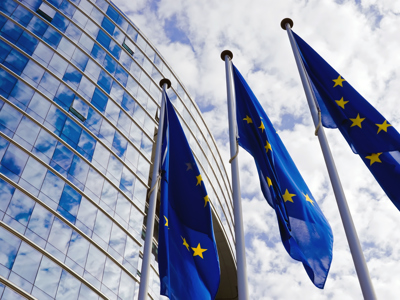
Fixing the Modern Slavery Act: A new dawn for supply chain transparency?
Oliver Holland and Walker Syachalinga from our international department discuss the new amendments to the Modern Slavery Act 2015 and what impact they could have.
Posted on 01 July 2021
A recent House of Lord’s private members bill proposes significant amendments to the Modern Slavery Act 2015 (MSA) which would significantly increase accountability for abuses occurring in the supply chain of UK multinational corporations. In a previous blog we discussed the significant impact to corporate accountability the draft Directive on Due Diligence and Corporate Accountability is likely to have. Here we discuss the proposed amendments to the MSA and whether it is the UK’s answer to the draft Directive.
What is the Modern Slavery Act 2015?
Sobering estimates suggest that there are 25 million people living in modern slavery because of forced labour, human trafficking, and commercial sexual exploitation. Section 54 of the MSA requires UK companies with an annual turnover of over £36 million to publish a modern slavery statement setting out any steps they have taken to tackle modern slavery in their supply chains. Whilst the MSA was a step in the right direction it has been ineffective in achieving its aim of supply chain transparency.
The Independent Review of the MSA presented to Parliament in 2019 concluded that “a number of companies are approaching their obligations as a mere tick-box exercise, and it is estimated around 40 per cent of eligible companies are not complying with the legislation at all”.
The Independent Review criticised the MSA for lacking “clarity, guidance, monitoring and enforcement in modern slavery statements” and failing to penalise any non-compliant organisations. The Independent Anti-Slavery Commissioner, whose task is to encourage good practice in tackling slavery and human trafficking offences, was criticised for being “too heavily influenced and constrained by government” and recommended that her mandate be focussed on domestic issues only with a separate envoy appointed to oversee international issues.
In response, the government has introduced a central modern slavery statement registry where consumers can search for statements published by commercial organisations. Additionally, new guidance has been issued to assist companies in identifying what to include in their modern slavery statements. However, the central registry is a voluntary requirement and the newly issued guidance has not actually amended section 54 of the MSA.
Critically, there is little penalty for companies not being transparent about their supply chains and companies continue to source products from third parties where there is strong evidence modern slavery allegations - such as forced labour in garment production in the Xinjian region of China or child labour in the production of cocoa in West Africa.
New modern slavery offences applicable to individuals and corporate persons
On 15 June 2021, the Modern Slavery (Amendment) Bill, a private members' bill, was introduced to the House of Lords. Among other matters, a new section 41(3)(g) is proposed to fix the MSA’s lack of clarity and guidance on disclosure and transparency by requiring commercial organisations to:
- publish and verify information about the country of origin of sourcing inputs in its supply chain,
- arrange for credible external inspections, external audits, and unannounced external spot-checks, and
- report on the use of employment agents acting on behalf of an overseas government.
Crucially, the bill attempts to fix the shortcomings of section 54 by adding new sections 54ZA and 54ZB. To address the issue of companies publishing false or misleading slavery and trafficking statements, section 54ZA would introduce individual criminal liability in cases where the “information in the statement is false or incomplete in a material particular, and the person either knows it is or is reckless as to whether it is”. Individuals caught by that requirement would include directors of corporate entities, members of limited liability partnerships and partners in other kinds of partnerships.
In England and Wales, individuals found guilty of making a false modern slavery statement would on conviction on indictment, be imprisoned for up to two years and fined 4% of the global turnover of their commercial organisation, to a maximum of £20 million, or to both. On summary conviction in England and Wales, guilty individuals would face imprisonment for up to 12 months, a fine, or both. The bill provides a defence to individuals if they can demonstrate that they took all reasonable steps to ensure that the slavery and human trafficking statement was corrected.
To impose a minimum standard of transparency and disclosure across supply chains, section 54ZB would create an offence for businesses that continue “to source from suppliers or sub-suppliers which fail to demonstrate minimum standards of transparency after having been issued a formal warning by the Independent Anti-slavery Commissioner”. Businesses convicted of an offence on indictment would be fined 4% of their global turnover to a maximum of £20 million. A fine would be imposed following summary conviction.
Modern Slavery Act amendments need to be effectively enforced
The bill is a welcome and ambitious attempt to strengthen supply chain transparency. Its transparency requirements, including the obligation on commercial organisations to conduct unannounced external spot-checks would promote high standards in supply chains. Additionally, the creation of offences and penalties applicable to both individuals and commercial organisations could transform modern slavery statements from mere tick-box exercises to persuasive and accurate accounts of a company’s supply chain.
However, one of the key weaknesses of the bill is its reliance on the Office of the Independent Anti-slavery Commissioner. The 2019 Independent Review raised concerns that the Commissioner was “too heavily influenced and constrained by Government” and recommended the establishment of an envoy or ambassador to deal with international aspects of modern slavery. To effectively combat modern slavery, the Office of the Independent Anti-Slavery Commissioner must be trusted to be truly independent and must be duly equipped to deal with the unique complexities of international supply chains. One hopes that the bill, if enacted into law, will be effectively enforced by a strengthened Commissioner or another organisation specifically created to address modern slavery in international supply chains. Whatever the outcome, the bill is a welcome and timely attempt to fix the shortcomings of the Modern Slavery Act.

Oliver Holland
Oliver is a partner in Leigh Day's international and environment teams. Oliver's practice covers environmental harm, human rights, modern slavery & consumer litigation, including expertise in conflict of law issues & cross-border disputes.



